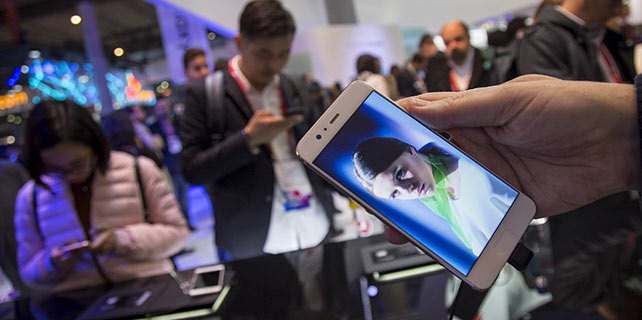Scientists develop safer batteries
WASHINGTON - Scientists have taken a big step toward developing practical applications for a type of lithium-ion battery that, unlike conventional ones, uses a water-salt solution as its electrolyte to prevent fire and explosion hazards, a study published on Sept 6 says.
Researchers at the University of Maryland and the US Army Research Laboratory have created such a safe battery that reaches the 4-volt mark desired for household electronics, such as laptops, they reported in Joule, Cell Press' new interdisciplinary energy journal.
"In the past, if you wanted high energy, you would choose a non-aqueous lithium-ion battery, but you would have to compromise on safety," says senior co-author Kang Xu, a lab fellow at the US Army Research Laboratory specializing in electrochemistry and materials science.
"If you preferred safety, you could use an aqueous battery, but you would have to settle for lower energy. Now, we are showing that you can simultaneously have access to both high energy and high safety."
The research followed a 2015 study in the US journal Science but was stymied from achieving higher voltages by the "cathodic challenge", in which one end of the battery made from either graphite or lithium metal is degraded by the aqueous electrolyte.
To solve this problem and make the leap from 3 volts to 4, the researchers designed a new gel polymer electrolyte coating that can be applied to the graphite or lithium anode.
This hydrophobic coating expels water molecules from the vicinity of the electrode's surface and then, upon charging for the first time, decomposes and forms a stable interphase - a thin mixture of breakdown products that separates the solid anode from the liquid electrolyte.
This interphase can further protect the anode from debilitating side reactions, allowing the battery to use desirable anode materials, and achieve better energy density and cycling ability.
"The key innovation here is making the right gel that can block water contact with the anode so that the water doesn't decompose and can also form the right interphase to support high battery performance," says senior co-author Chunsheng Wang, a professor of chemical and biomolecular engineering at the University of Maryland.
All aqueous lithium-ion batteries benefit from the inflammability of water-based electrolytes as opposed to the highly flammable organic solvents used in their current commercial non-aqueous counterparts.









